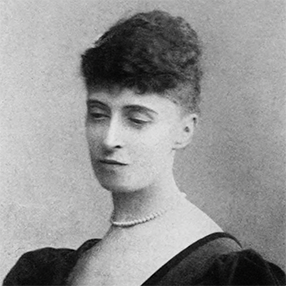West Wind in Winter
Another day awakes. And who —
Changing the world — is this?
He comes at whiles, the Winter through,
West Wind! I would not miss
His sudden tryst: the long, the new
Surprises of his kiss.
Vigilant, I make haste to close
With him who comes my way.
I go to meet him as he goes;
I know his note, his lay,
His colour and his morning rose;
And I confess his day.
My window waits; at dawn I hark
His call; at morn I meet
His haste around the tossing park
And down the softened street;
The gentler light is his; the dark,
The grey — he turns it sweet.
So too, so too, do I confess
My poet when he sings.
He rushes on my mortal guess
With his immortal things.
I feel, I know him. On I press —
He finds me ’twixt his wings.
This poem is in the public domain. Published in Poem-a-Day on December 15, 2024, by the Academy of American Poets.
“West Wind in Winter” appears in Later Poems (John Lane, 1902). In Reconceiving Nature: Ecofeminism in Late Victorian Women’s Poetry (University of Missouri Press, 2019), author Patricia Murphy observed, “Meynell’s admiration of [Alfred, Lord] Tennyson’s style does not mean that her poetry lacks a descriptive quality, however, for frequent adjectival turns in her voice bring forth noteworthy effects. Generally, though, the adjectival verbiage seems stripped to an almost skeletal form. Meynell’s customary technique presents sparsely phrased depictions with merely a sprinkling of adjectival descriptors that seem rather quotidian and restrained. The 1902 ‘West Wind in Winter,’ for instance, remarks on a ‘sudden tryst,’ a ‘gentler light,’ a ‘tossing park,’ and a ‘softened street’ with no more elaborative modifiers included. The poetry frequently conveys a mental impression through an almost prose-like format of straightforward, unembellished lines that read like narrative statements. ‘West Wind in Winter,’ for example, includes such comments, phrased in typical sentential form and ending with a full stop. Nouns and pronouns rather than adjectives tend to carry a poem’s weight, as in the opening lines: ‘Another day awakes […].’”

